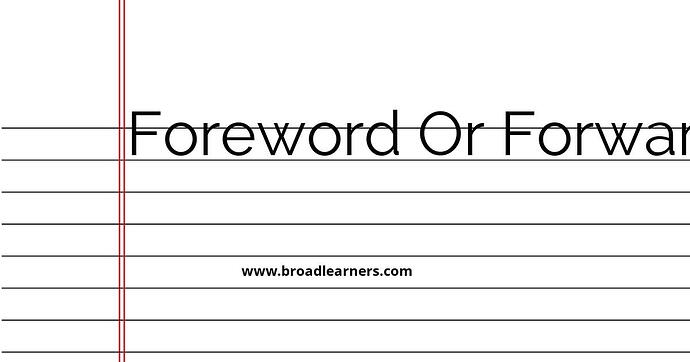'Foreword' and 'forward' are commonly confused words in English grammar. Understanding the difference between 'foreword' and 'forward' is important to use them correctly in written and spoken English.
'Foreword' is a noun that refers to a short introductory section at the beginning of a book, typically written by someone other than the author. It provides context or commentary on the book and its author.
'Forward' can be used as an adjective, adverb, or verb. As an adjective, it means moving or directed ahead. As an adverb, it means in a direction or position that is ahead. As a verb, it means to send something onward or ahead.
Let's take a closer look at the meanings and usage of 'foreword' and 'forward'.
| 'Foreword' | 'Forward' |
|---|---|
| 'Foreword' is a noun that refers to a short introductory section at the beginning of a book. | 'Forward' can be used as an adjective, adverb, or verb. |
|
|
To remember the difference between 'foreword' and 'forward', it can be helpful to remember that 'foreword' specifically refers to an introductory section in a book, while 'forward' has multiple meanings and can be used as an adjective, adverb, or verb.
Here are some examples of correct usage:
- I highly recommend reading the foreword of that book.
- We need to move forward with our plans for the future.
- She always looks forward to her morning jog.
- Please forward this message to the entire team.
Remembering the correct usage of 'foreword' and 'forward' will improve your grammar and communication skills.
